Biomedical engineering has been quite an intriguing subject for individuals interested in developing equipment and software primarily used in the healthcare industry. If you want to pursue a course in biomedical engineering in India, you have landed in the right place. SRMUH offers in-depth courses in biomedical engineering and placements upon completion. It offers a bright career prospect for budding enthusiasts.
Forensic science is part of biomedical engineering that deals with public health and criminal laws. These sectors are primarily crime-laboratory-based jobs. It is safe to say that ample crime in the world needs to be looked into. This is why the need for a forensic scientist, in a general sense, is incomparable. The placement of biomedical engineers is expected to rise by 7% by 2026. So, it is the right time to think in the right direction.
What Is Biomedical Engineering?
Biomedical engineering is a process that combines engineering principles and biomedical sciences to create new and valuable objects used in medical science. This is a vast field that deals with a range of medical inventions. Biomedical engineering does everything from technical findings to fuel machines and software to the artificial construction of human body parts for replacement.
Scope In Biomedical Engineering
Biomedical engineering offers a vast scope in today’s world because of its nature. The advancement in medical sciences coupled with the technical needs of the healthcare industry has created many challenges for biomedical engineers in recent times. The Biomedical Engineering (BME) faculty, headed by Associate Professor and Head Dr. Arpana Vibhuti, offers an outstanding learning opportunity and comprehensive course guidance at SRMUH.
The scope of forensic science goes beyond just crime laboratory jobs. Besides forensic laboratories, detective offices, and other general public jobs, private bank jobs are included in forensic placements. SRMUH is one of the few Indian institutes to offer forensic science courses under Biomedical Engineering in India.
Course Curriculum: Biomedical Engineering in India
The courses offered in the curriculum of the SRMUH are quite few. The institute also has 33 years of experience in the education industry. They can send young minds into the actual field, which consists of anatomy and physiology, biomechanics and biomaterials, clinical engineering, medical imaging, and genetic engineering.
A Thriving Career in Biomedical Engineering
Completing the courses will land you several opportunities to work in hospitals or laboratories. They may also work in industries that manufacture and design biomedical engineering products for the healthcare sector.
Completing a degree in Biomedical Engineering in India through SRMUH can land you primary job designations such as software engineer, manufacturing engineer, quality engineer, physician, researcher, etc.
The skills required for forensic sciences are knowledge of various scientific fields, technical and strong analytical skills, and intelligence and observation power at their best. SRMUH helps you take these natural skills to their full potential by providing practical and research-oriented learning.
Salary of Biomedical Engineers
The salary perspective of biomedical engineers can vary from INR 5,00,000 and can go up to INR 10,00,000 annually.
Course Duration at SRMUH
The bachelor´s program is 4 years long. At the same time, the postgraduate programs are mostly 2 years max, with a single exception of an LL.M. course of 1-year duration. PG/UG (integrated) courses have a 5-year tenure. SRMUH also offers Ph.D. courses in several biomedical engineering fields.
Eligibility for Enrollment in Biomedical Engineering
For a bachelor´s degree course in Biomedical Engineering, you must pass the 10+2 examination with Physics, Chemistry, and Mathematics as compulsory subjects and Biology/Bio-Technology. As mentioned earlier, a minimum of 50% in all subjects (taken together) is mandatory.
Popular Job Profiles Under Forensic Science in Biomedical Engineering
Jobs in forensic sciences may vary among sectors, from crime and investigative bureaus and police departments to hospitals, universities, banks, and law firms. Popular designations may include crime reporters, crime science investigators, forensic engineers, experts or scientists, legal counselors or law consultants, handwriting experts, or even teachers or professors.
SRMUH has faculties in engineering and technology, hotel management, law, management studies, commerce and finance, science, and the humanities. They have a global reach, with over 80,000 students and 4,500 staff on the campus in India. Under UGC, AIU, BCI, DSIR, AICTE, and other government affiliations, SRMUH is also a rare destination for forensic studies.
The 100% placement assistance makes SRMUH the first choice of the course pursuer. SRMHU has been rated ‘AAAA+’ by Careers360 and is India’s first university powered by NASSCOM Future Skills.






